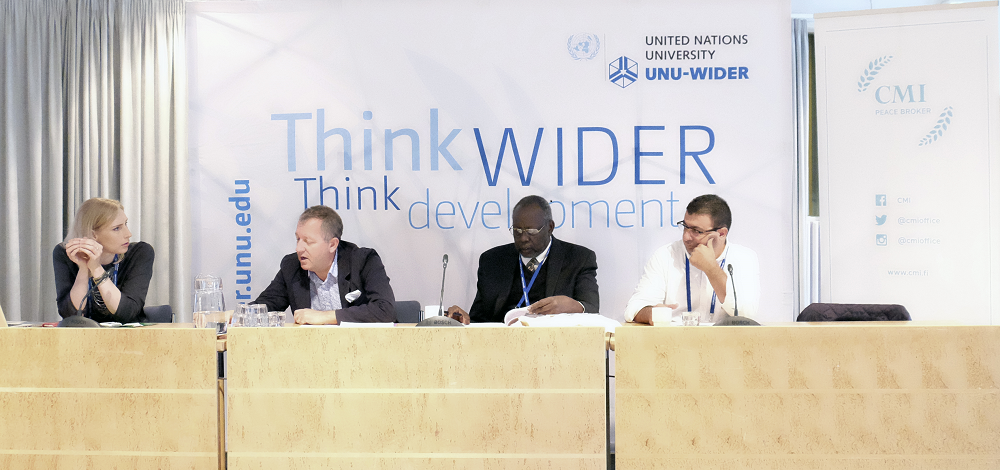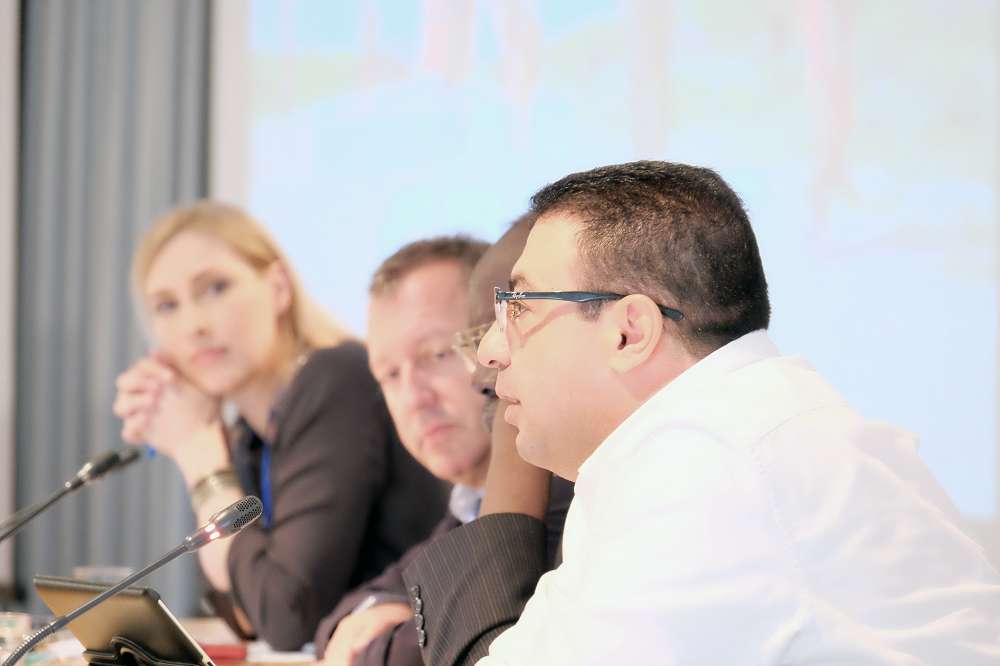Debating the role of various non-traditional actors in peace making
A CMI-hosted panel discussed various benefits and challenges of including different actors in conflict resolution processes.

CMI-hosted panel agreed that there is plenty of space for non-traditional actors in peacemaking
Peacemaking processes have plenty of room for non-traditional actors, ranging from local and international NGOs to businesses. This was one of the key messages that a CMI-hosted panel agreed upon during the UNU-WIDER’s “Responding to Crises” seminar organized last week. CMI’s session shared experiences from a range of political and economic actors in conflict resolution. The participants come from conflict contexts ranging as different from each other as Ukraine, South Sudan, and the Middle East.
Role for businesses in peacemaking
Local civil society actors are often involved in supporting peace processes. CMI’s Middle East advisor Yasar Qatarneh pointed out that we should pay special attention to the representativeness of these organisations. Are they really representing the society at large? Qatarneh also noted that in his region it is a huge benefit for countries in need to get support from countries without any political baggage. Finland is a prime example of such a neutral country.
In the conflict contexts, many stand to gain from instability. For these types of actors – arms dealers and others – there is no incentive to change the status quo. However, there are also businesses who have interest in seeking stability and peaceful transition in conflict-ridden regions. Two obvious ways in which such progress can come about are through job creation and by businesses paying their taxes.

CMI’s advisor Yasar Qatarneh shared views from the Middle East
According to Jock Mendoza-Wilson, a business consultant from Ukraine, “economic interests are often shared interests between both sides of the conflict. Moreover, economic relations are usually seen non-political. This means that businesses can be actors in consolidating peace.“
Tackling spoilers
Another group often faced in conflict resolution processes are spoilers. These are usually actors who believe that peace would threaten their interests, and so they use violence to weaken peace efforts.
As noted by Dr. Lual A. Deng from South Sudan, “spoilers, whether they come from the government or from the opposition, undermine any peace agreement”. Dr. Deng argued that peacemakers should draw lessons and best practices from different national dialogues on how to include spoilers. The panelists agreed that it is important to make peace processes as inclusive as possible so as to include spoilers. Declining the offer of inclusion would leave spoilers highly vulnerable.
CMI’s panel was part of a conference held at the UNU-WIDER (The United Nations University World Institute for Development Economics Research) institute in Helsinki. The Responding to Crises conference brought together experts around the world to discuss ongoing, unexpected, and future crises.